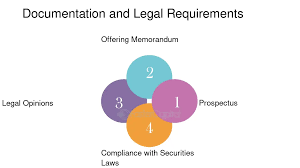Now Reading: Why Foreign Investors Are Flocking to Buy Property in the UAE 2030
-
01
Why Foreign Investors Are Flocking to Buy Property in the UAE 2030
Why Foreign Investors Are Flocking to Buy Property in the UAE 2030

The United Arab Emirates (UAE) has become one of the most attractive destinations for foreign property investment. With world-class infrastructure, tax-free benefits, and a growing economy, it’s no surprise that international investors are turning their attention to cities like Dubai and Abu Dhabi.
But before diving into the UAE real estate market, foreign buyers need to understand the legal framework, market dynamics, and ownership regulations. Here’s a complete guide for foreign investors looking to buy property in the UAE.
1. Foreigners Can Own Property – But Only in Designated Areas

One of the most important things to know is that foreign nationals can own property in the UAE, but only in specific zones known as “freehold areas.”
In cities like Dubai, popular freehold areas include:
- Downtown Dubai
- Dubai Marina
- Palm Jumeirah
- Business Bay
- Jumeirah Village Circle
In these zones, foreigners can buy, sell, lease, and rent out properties freely.
Outside of freehold areas, foreign buyers may be limited to leasehold ownership or may not be allowed to purchase property at all. Always check local rules before investing.
2. Legal Requirements and Documentation

To buy property in the UAE as a foreigner, you need:
- A valid passport (residency not required)
- A signed sales agreement
- Proof of payment or mortgage approval
- A No Objection Certificate (NOC) from the developer (for off-plan properties)
The buying process is relatively straightforward and can take between 30 to 45 days. Most deals require a 10% deposit, and there are no income or property taxes—a major draw for investors.
3. Understanding Property Types: Off-Plan vs. Ready Property

Foreign investors can choose between:
- Off-plan properties (under construction, often cheaper, high ROI)
- Ready properties (immediately rentable or livable)
Off-plan properties are offered directly by developers and are often more affordable but carry construction risk. Ready properties provide faster rental income but may have a higher price tag.
4. Financing Options for Foreigners
Foreign investors can access mortgages through local and international banks. Requirements include:
- Minimum income proof
- 20–25% down payment
- Clean credit history
Mortgage terms range from 5 to 25 years. Note that interest rates may be higher for non-residents, and not all banks offer financing to foreigners.
5. Transaction Costs and Fees
While the UAE offers tax-free living, there are still some property-related costs, including:
- Dubai Land Department (DLD) fee: 4% of the property value
- Agent commission: Around 2%
- Property registration fee: AED 4,000 (for properties over AED 500,000)
- Mortgage registration fee: 0.25% of the loan amount
Be sure to budget for these costs when making your investment plan.
6. Rental Yields and Return on Investment
Dubai is known for its high rental yields, often between 5% and 8%, depending on location and property type. Short-term rental platforms like Airbnb are also booming, especially in tourist hotspots.
Investors can manage rentals themselves or use property management companies that charge a service fee.
7. Residency Through Investment
Foreign investors buying property in the UAE may be eligible for a residency visa, depending on the investment size:
- AED 750,000: 2-year investor visa
- AED 2 million or more: 10-year Golden Visa (conditions apply)
These visa programs make the UAE even more attractive for long-term investors and entrepreneurs.
8. Risks and Challenges
Despite the many benefits, foreign buyers should be cautious about:
- Fluctuating property prices
- Delays in off-plan project delivery
- Currency exchange rates
- Developer reputation and financial health
Due diligence is critical. Always research the developer and consult with a legal advisor before signing any contracts.
9. Working With Real Estate Agents and Developer
Only deal with RERA-certified agents (Real Estate Regulatory Agency) to avoid scams. You can verify licenses through the Dubai Land Department website.
Major developers include:
- Emaar
- DAMAC
- Nakheel
- Sobha Realty
Working with reputed firms ensures transparency and better customer service.
10. Long-Term Outlook for the UAE Property Market
The UAE’s real estate sector has shown resilience and strong recovery post-COVID. Dubai especially has seen a surge in demand driven by:
- Expo 2020 legacy
- Business-friendly reforms
- Remote work migration
The government’s push for digital visas, tax incentives, and liberalization of business ownership rules makes the UAE a powerful investment hub for years to come.
Final Thoughts
Buying property in the UAE as a foreigner is not only possible—it’s often very profitable. With the right planning, legal guidance, and research, investors can enjoy tax-free returns, visa benefits, and world-class infrastructure in one of the Middle East’s most exciting markets.
Whether you’re looking for a holiday home, rental income, or long-term asset, the UAE offers plenty of opportunities for smart foreign investors.
Read More:- Shobha Realty Launches Its Most Luxurious Project Yet—Full Details Inside 2025



















